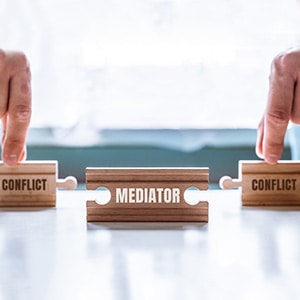
The Timeline Of Guardianship
There are many reasons why someone might need a guardian. Sometimes it is because they have a medical condition that prevents them from making rational decisions. Other times it is because they are young and have not yet learned how to make good choices. In any case, guardianship usually starts off broad and then narrows down over time as the person improves or learns to make better decisions.
Individuals with intellectual disabilities, for instance, may need a guardian to make decisions on their behalf starting at 18 years old. In some cases, this guardianship will last for the rest of the person’s life. This is because intellectual disabilities can severely impact an individual’s ability to make sound decisions. Therefore, the role of a guardian can help ensure that the individual with an intellectual disability is able to live as safely and comfortably as possible. However, this doesn’t mean that everyone who is appointed a guardian will need one in perpetuity.
For example, someone who is not able to make decisions about their own finances may be given the opportunity to manage $500 for a month. They will need to show the court that they are able to pay bills on time every time they become due. This demonstration of financial responsibility will show that they are capable of managing their finances.
After the guardian oversees their finances for a while, they will get all the money at the beginning of the month and pay every bill themselves. The court will be satisfied that they are capable of handling all their finances.
Someone’s ability to make their own decisions can be shown by living independently for a period of time or taking necessary medications to prevent hospitalization. Each situation is different, and the requirements for each person will vary, but the measures of guardianship can either last a lifetime or be of a much shorter duration.
When Guardianship Can Be Ended Early?
Guardianship can be ended prematurely if the ward demonstrates the ability to manage their own affairs. This was the case in an instance where I served as the guardian ad litem. We were sure that this person would remain in a coma for their whole life, yet they proved us wrong.
One day, this person called the office and said that they were the client. I was surprised to learn that they had a severe medical anomaly that was cleared by a medication change. In this case, that person’s guardianship was terminated fairly quickly and easily.
Guardianship Modification
The purpose of guardianship is to provide care and protection for someone who is unable to do so themselves. The court oversees each guardianship to make sure that these tasks are being carried out properly, and that the person receiving care is protected and properly taken care of. To do this, the court requires annual reports from guardians and keeps up with these reports to ensure that the guardian is doing their job correctly.
There are many reasons why guardianship may be removed by the court. Some of the most common reasons include misuse of funds, neglect of the ward, or incompetence on the part of the guardian. In many cases, the guardian may simply pass away. Whatever the reason, it is important to understand that any guardianship can be revoked or considered for removal by a court of law or as a result of a request for modification from any party.
The Petition For Guardianship: Reasons for Challenges and Denials
A guardianship petition can be denied for various reasons. One reason is if a doctor is unwilling to determine that the person is medically incapable of meeting their own needs or being able to carry out their own day-to-day activities.
Another reason is if there are technicalities in the procedure. We find that that happens in cases where folks represent themselves rather than when an experienced attorney for guardianship assists them. If you file a petition and it is dismissed, you may be responsible for the guardian ad litem’s costs.
For more information on Guardianships Law in North Carolina, an initial consultation is your next best step. Get the information and legal answers you are seeking by calling (704) 862-0148 today.





